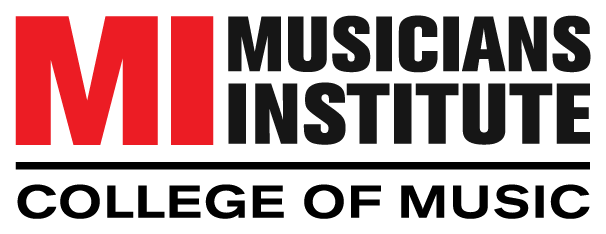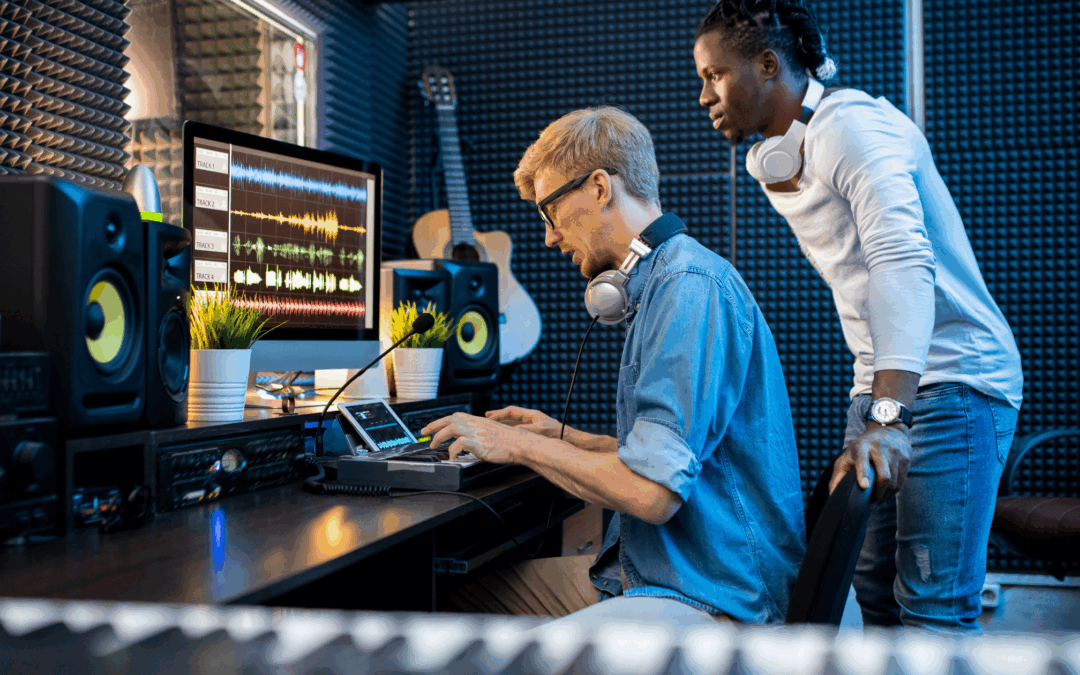If you’re an artist dreaming of hearing your songs on TV shows, movies, or even video games, understanding music licensing agreements is the first step. These agreements are the legal frameworks that make sure your music is cleared for use, while also ensuring you get paid fairly.
From sync licenses to master use and performance rights, each type of agreement plays a unique role in the world of film and television. At Musicians Institute, we prepare students not only to create music but also to navigate the business side, including licensing opportunities that can launch lasting careers.
Sync License
A synchronization (sync) license is one of the most common agreements in film and television. This license gives a producer or studio permission to pair your music with visual media, to us in anything from a movie montage to a commercial. If you’ve ever watched a dramatic scene underscored by the perfect song, a sync license made that possible.
At MI, students gain hands-on experience writing for visuals through workshops and panels featuring industry pros, helping them understand how to craft music that’s both creative and sync-ready.

Blog Post
"*" indicates required fields
By submitting this form, I authorize Musicians Institute (MI) to make or allow the placement of calls, emails, and texts to me at the phone number that I have provided, including through the use of automated technology, or a prerecorded or artificial voice. I understand that I am not required to provide my phone number as a condition of purchasing any property, goods, or services. I agree to the terms of MI’s Privacy Policy. MI will not sell or rent your information to third parties, and you may unsubscribe at any time.
Master Use License
While a sync license covers the composition, the master use license covers the actual recording. That means if a music supervisor wants to use your exact performance, not just the sheet music, they need this license too. Both sync and master licenses are often negotiated together, but they’re technically separate.
Musicians Institute’s curriculum emphasizes both performance and production skills, so students graduate with high-quality recordings that are ready for potential licensing deals.
Mechanical License
A mechanical license is needed when your music is reproduced and distributed, such as when a soundtrack album is released. While this type of license is less visible to the average viewer, it’s another way musicians earn income when their songs are tied to film or television projects.
MI helps students understand these less glamorous but crucial aspects of music business, ensuring graduates know how to protect their work and maximize revenue streams.
Public Performance License
Every time your music is broadcast, whether on TV, in a movie theater, or streamed online, a public performance license comes into play. Performance Rights Organizations (PROs) like ASCAP, BMI, or SESAC track these uses and make sure you’re paid royalties.
Through MI’s industry connections and Artist & Career Services, students learn how to register with PROs and collect royalties, giving them the tools to earn from every placement.
Why Music Licensing Matters
Music licensing agreements can be intimidating at first, but they’re also one of the most powerful ways for musicians to expand their careers. Placements in film, television, and games not only generate income but also provide massive exposure.
That’s why Musicians Institute incorporates licensing, publishing, and sync education into its programs. Over the years, MI has hosted sync panels, partnered with libraries, and helped students land placements that became stepping stones to professional success.
Ready to Break Into Music Licensing?
Understanding music licensing agreements is key to turning your songs into career-building opportunities. At Musicians Institute, we equip musicians with the knowledge, skills, and industry connections to thrive in sync, licensing, and beyond.
Explore MI’s programs today and take the next step toward getting your music heard in film and television.

